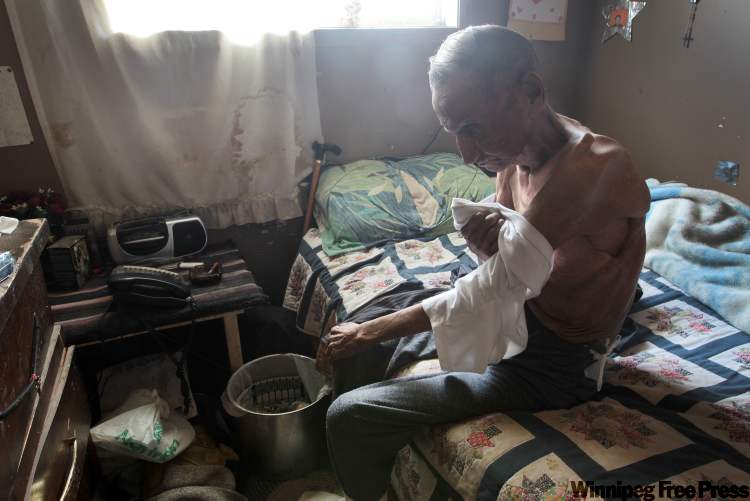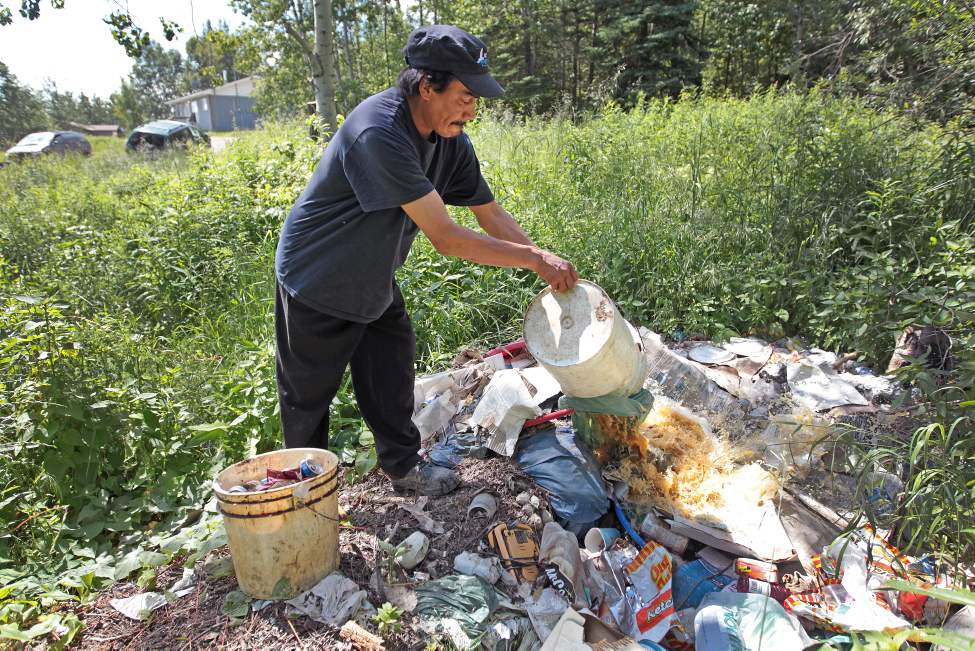Less water than a refugee camp
Advertisement
Read this article for free:
or
Already have an account? Log in here »
To continue reading, please subscribe:
Monthly Digital Subscription
$0 for the first 4 weeks*
- Enjoy unlimited reading on winnipegfreepress.com
- Read the E-Edition, our digital replica newspaper
- Access News Break, our award-winning app
- Play interactive puzzles
*No charge for 4 weeks then price increases to the regular rate of $19.00 plus GST every four weeks. Offer available to new and qualified returning subscribers only. Cancel any time.
Monthly Digital Subscription
$4.75/week*
- Enjoy unlimited reading on winnipegfreepress.com
- Read the E-Edition, our digital replica newspaper
- Access News Break, our award-winning app
- Play interactive puzzles
*Billed as $19 plus GST every four weeks. Cancel any time.
To continue reading, please subscribe:
Add Free Press access to your Brandon Sun subscription for only an additional
$1 for the first 4 weeks*
*Your next subscription payment will increase by $1.00 and you will be charged $16.99 plus GST for four weeks. After four weeks, your payment will increase to $23.99 plus GST every four weeks.
Read unlimited articles for free today:
or
Already have an account? Log in here »
Hey there, time traveller!
This article was published 30/10/2010 (5526 days ago), so information in it may no longer be current.
ST. THERESA POINT — Geordie Rae traipses wearily through the bush to a neighbour’s house a couple of times a day, panting under the weight of a plastic pail of water.
The five-minute walk with a used oil or chemical bucket that weighs 19 kilograms when full is too much for the kids to manage, and the family’s vehicle isn’t running.
In Island Lake, the dirt roads dissolve into deep, muddy ruts in the rain, making expensive four-wheel-drive trucks and sport utility vehicles the only practical option. When you’re unemployed and covering astronomical grocery bills for food that has to be flown in, it’s hard to afford a taxi ride to the nearest community water tap.

Social assistance delivers six pails of water every week for Rae’s father-inlaw Zach Harper because he’s an elder. Everyone else fends for themselves.
The quality of water flowing out of the treatment plant is fine, but there’s not enough to go around at Rae’s two-bedroom house, shared by seven family members. To supplement the treated drinking water from a neighbour lucky enough to have plumbing, in summer Rae grabs about four buckets a day of lake water to use for laundry.
Still, it’s almost impossible to keep the house clean.
“I could win who has the sloppiest house,” Harper, 74, said in Oji-Cree, which he speaks much more fluently than English.
“He says it smells in here all the time,” Rae translated.
The house is not far from the main waterline. Harper had planned to save up $5,000 to pay for his own connection. But then his wife got sick and he had to look after her in Winnipeg. By the time she died and he returned home, the tuberculosis survivor was so frail his daughter Rose and her family had to move in to look after him.
No running water means homes are built without bathtubs.
Home-care workers used to drive Harper into the nursing station to bathe, but last spring he said that hadn’t happened for a while. He said it was much easier to look after himself when he lived in Winnipeg.
Little Lucas Rae is as filthy as any exploring toddler, but rarely can his mother spare precious water to give him a scrub in a basin on the kitchen table.
The fridge is full of wild fish and meat, but there’s not enough wash water to clean off the dripping blood. On hot summer days, the stench from dirty dishes and a latrine pail is overwhelming.
Every morning, Geordie dumps the pail outside. “I just throw it where the garbage goes.”
A priest who worked in the Island Lake area used to be mystified about why parishioners didn’t invite him over to tea until he realized they are ashamed of the way they live.

The family might as well be living in the desert, though they’re surrounded by stunningly beautiful Canadian Shield lakes.
Rose said she and one of her sons always seem to be getting sick.
Retired Kenora medical officer Pete Sarsfield, who blew the whistle on a lack of running water in Pikangikum First Nation, calls such reserves Canada’s “refugee camps.”
“We have created conditions where they can’t be healthy.”
“It makes it much more difficult on a daily basis if we can’t wash regularly, can’t wash our dishes in clean water, can’t keep our bodies clean enough that impetigo, lice, scabies don’t occur spontaneously.”
The refugee-camp analogy is not an exaggeration. Harper’s family lives on about 10 litres of clean, treated drinking water a day per person — less than aid workers typically provide during a natural disaster. If you add in the dirty lake water, they’re using about 30 litres a day, which the United Nations says is not enough to meet basic needs.
Does Harper think he’ll live to see governments fund running water to his house?
“He’ll ask God that question,” Rae translated.

